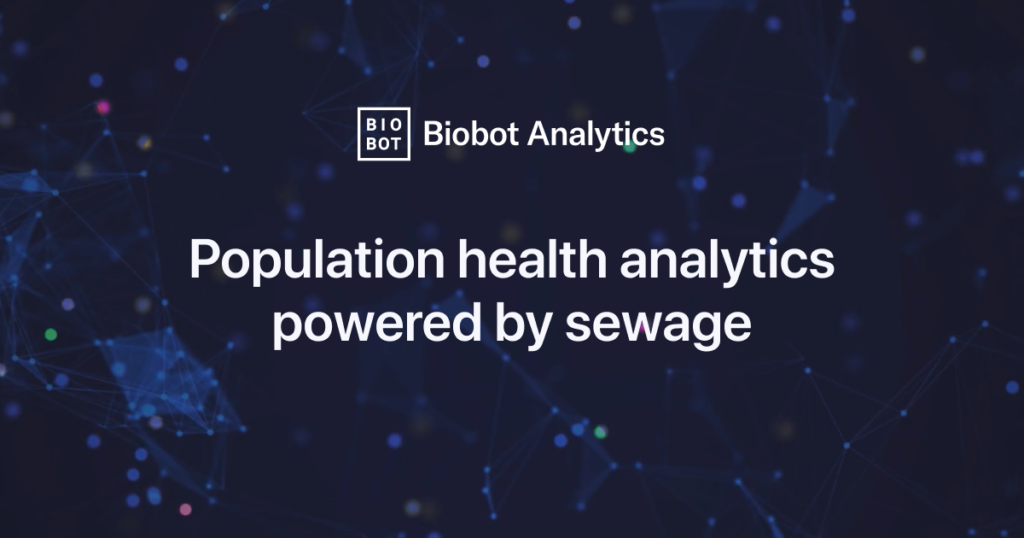Biobot Analytics is the first company in the world to commercialize data from sewage. Founded by a biologist and an architect, Biobot Analytics has exemplified the power of interdisciplinary collaboration from its beginning. The company emerged from the MIT Underworlds Project, which was led by Dr. Mariana Matus and Newsha Ghaeli, and supported by Professors Eric Alm and Carlo Ratti. Their work resulted in several scientific publications, media coverage, and entrepreneurship awards.

Biobot Analytics is the leading platform for COVID-19 tracking in wastewater. But their platform does so much more. They can also detect respiratory diseases, foodborne illnesses, and high-risk substances in sewage. By providing timely and actionable insights, Biobot Analytics can help public health officials, policymakers, and researchers to protect communities from various health risks.
How does Biobot Analytics collect and analyze sewage samples?
Biobot Analytics takes a careful and systematic approach to collect and study sewage samples, which hold essential public health information. They start by teaming up with local wastewater treatment plants to regularly gather sewage samples. These samples provide a glimpse of what people in the community are shedding, helping to spot health trends. Biobot then uses advanced technology, like genetic testing, to look closely at these samples on a tiny, molecular level. This helps them find specific genetic markers linked to various health issues, including viruses, bacteria, and even chemicals.
Next, they use artificial intelligence (AI) to analyze the collected data. AI acts like a detective, finding potential outbreaks and health risks. By combining biology, technology, and AI, Biobot Analytics turns sewage into a powerful tool for keeping an eye on public health. This clever method not only tracks diseases like COVID-19 but also gives us a wider view of overall community health, making life better for everyone.
What are the challenges and opportunities for scaling up wastewater epidemiology globally?
Scaling up wastewater epidemiology worldwide presents both challenges and exciting opportunities. One of the hurdles is establishing strong partnerships with local communities and authorities. Building trust and collaboration is crucial to access sewage samples and gain valuable insights. Additionally, adapting the technology to diverse wastewater systems and regulations in different regions can be challenging but is necessary for global scalability.
However, the potential benefits are immense. Wastewater epidemiology can offer early warnings for various health threats, from infectious diseases to drug use patterns. Scaling up means we can monitor and respond to these issues faster, potentially saving lives and resources. It also provides a unique chance to understand global health trends, helping communities worldwide improve public health and well-being. By overcoming challenges and seizing opportunities, we can harness the power of wastewater epidemiology for a healthier, safer world.
If you want to learn more about how Biobot Analytics transforms wastewater into public health data, you can visit their website. You can also explore their wastewater analysis plans, how to implement testing programs, and how they can help improve the health of your community.
Also Read: How To Automate Your Business Processes With Nanonets AI
